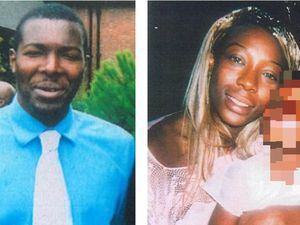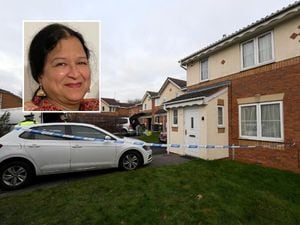Melvin James: IPCC probe finds officers acted appropriately in tough situation
An investigation into the police response to a fatal stabbing in Wolverhampton has concluded that officers 'acted appropriately in difficult circumstances'.

The probe by the Independent Police Complaints Commission came after a referral from West Midlands Police following the stabbing in Merry Hill, Wolverhampton, in March.
An IPCC investigator found there was no case to answer for misconduct.
Melvin James stabbed his sister Anne-Marie to death before turning the knife on himself at a flat in Leasowes Drive.
He also stabbed and seriously injured his mother Lynette.
Following an inquest this week, a jury returned a narrative verdict which found Mr James had died from multiple stab wounds and Anne-Marie had died from a stab wound to the chest.
The jury also concluded police had used an 'appropriate level of force' on Mr James.
As officers arrived Mr James’ mother made a 999 call to say her son had stabbed her and his sister, and she had locked herself in the bathroom.
Two officers made a tactical withdrawal after being confronted by Mr James with a knife in a hallway outside the flat and deploying a Taser which was not fully effective.
When further officers arrived Mr James had retreated back into the flat.
They forced entry and restrained him after six further Taser deployments and the use of three stun grenades.
The IPCC’s investigator considered the use of force and found no potential misconduct on the part of any of the officers involved.
He described a 'significant threat to officers' and a need to allow safe access for medical staff as soon as possible.
Derrick Campbell, IPCC commissioner for the West Midlands, said: “This was a tragic incident and I would like to extend my condolences to the family.
"It has been a terrible ordeal for them.
“This has also had a big impact on the community and my sympathies are also with neighbours, friends and anyone else affected.
“We had a duty to investigate the police response that day and it is clear officers acted professionally and to the best of their ability in the face of extremely difficult and distressing circumstances.”
Part of the investigation focused on the management of the scene by one officer and the establishment of a cordon outside the flats when there were still members of the public potentially at risk inside.
In the investigator’s opinion there was no case to answer for misconduct.
The IPCC investigation included obtaining accounts from 17 officers, reviewing witness statements from members of the public and also reviewing airwave radio transmissions and body worn video footage.





